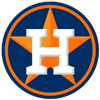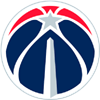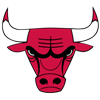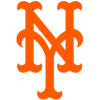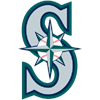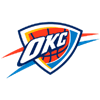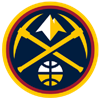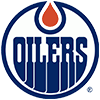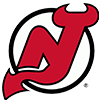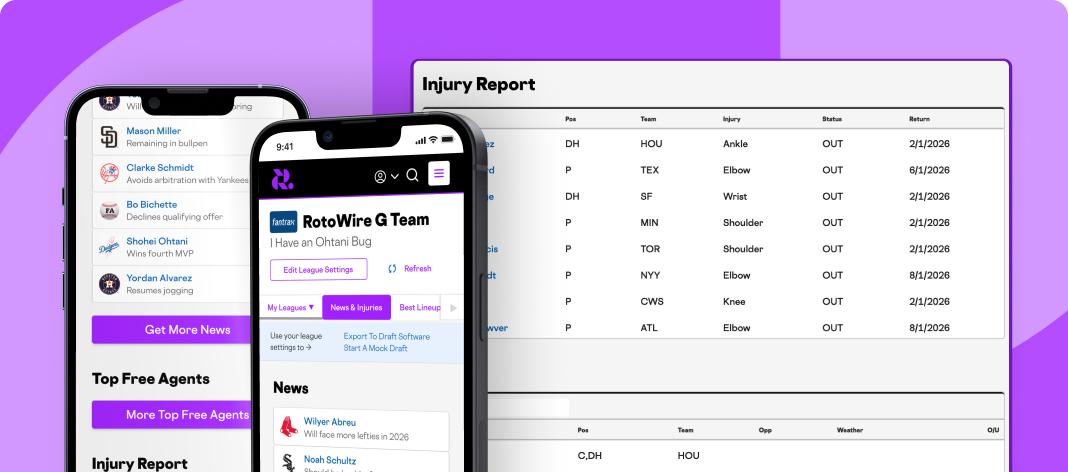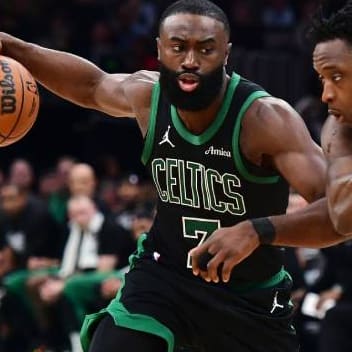STATE OF THE FRANCHISE
Finally, the Sacramento Kings are under new ownership (and management, and coaching). For the past several seasons, the Kings have been arguably the NBA's greatest example of how not to run a franchise. The Kings were also the poster-children for uncertainty, with regular (and often baffling) changes to the playing time rotations, a franchise player at seemingly constant risk of suspension, and even uncertainty about which city will host the team in the years to come. Hopefully – for both Kings fans and NBA fans at large – last spring's sale of the team will end the Kings' decade-long downward spiral. In addition to a new ownership group, let by technology executive Vivek Ranadive, the team also sports a new general manager (Pete D'Alessandro), coach (Mike Malone), and a renewed commitment to the city of Sacramento.
Changes began immediately under the new management. Former Rookie of the Year Tyreke Evans is in New Orleans as a result of a trade that brought back Grievis Vasquez. Talented rotation forwards Carl Landry and Luc Mbah a Moute were added to the roster at reasonable prices, though they figure more as building blocks than key foundational cornerstones. The Kings should spend the coming season helping Vasquez and rookies Ben McLemore and Ray McCallum develop to their maximum potential, with few other priorities. Over the long term, the Kings can only improve, but this season may again be rough. The best thing that can be said about Sacramento's 2013-14 prospects
STATE OF THE FRANCHISE
Finally, the Sacramento Kings are under new ownership (and management, and coaching). For the past several seasons, the Kings have been arguably the NBA's greatest example of how not to run a franchise. The Kings were also the poster-children for uncertainty, with regular (and often baffling) changes to the playing time rotations, a franchise player at seemingly constant risk of suspension, and even uncertainty about which city will host the team in the years to come. Hopefully – for both Kings fans and NBA fans at large – last spring's sale of the team will end the Kings' decade-long downward spiral. In addition to a new ownership group, let by technology executive Vivek Ranadive, the team also sports a new general manager (Pete D'Alessandro), coach (Mike Malone), and a renewed commitment to the city of Sacramento.
Changes began immediately under the new management. Former Rookie of the Year Tyreke Evans is in New Orleans as a result of a trade that brought back Grievis Vasquez. Talented rotation forwards Carl Landry and Luc Mbah a Moute were added to the roster at reasonable prices, though they figure more as building blocks than key foundational cornerstones. The Kings should spend the coming season helping Vasquez and rookies Ben McLemore and Ray McCallum develop to their maximum potential, with few other priorities. Over the long term, the Kings can only improve, but this season may again be rough. The best thing that can be said about Sacramento's 2013-14 prospects is that, after Philadelphia, they could be front-runners in the Andrew Wiggins-inspired loss-a-thon.
PLAYING TIME DISTRIBUTION
The most important development for fantasy owners should be the departure of former head coach Keith Smart. Rotations were unsteady and unpredictable during his short season and a half at the helm, making all borderline Kings' players (read: players other than DeMarcus Cousins) frustrating for fantasy managers. While it may take a few weeks for the dust to settle after a busy offseason, this years Kings are significantly more likely to experience predictable usage rates on a nightly basis. What stands in the way of nightly predictability in 2013-14 is an evenly matched roster – battles for positioning within the depth chart could rage on all season, especially for the starting forwards and backup guard spots.
Fresh off a giant four-year extension, expect Cousins to see as much court time as can be considered healthy, probably slightly more than 35 minutes per night. Greivis Vasquez and Ben McLemore should start at guard, each playing in the range of 25 to 30 minutes per night. The starting forward positions remain unclear, with either John Salmons or Luc Mbah a Moute at small forward, and either Jason Thompson or Patrick Patterson, at power forward until Carl Landry returns in the Spring. It looks like Thompson and Mbah a Moute currently have the lead on the starting positions and 25 minutes per night, in which case backups Patrick Patterson and John Salmons would play closer to 20 minutes. As things currently stand, Isaiah Thomas and Marcus Thorton should both play more than 20 minutes a night. Backup center Chuck Hayes looks likely to play nearly 15 minutes per game. This year may mark the end of the Jimmer Fredette experiment in California's capital, given his history of disappointment and the significant promise and upside rookie Ray McCallum has shown so far. As such, look for McCallum to start the season with nearly 15 minutes per night, while Freddette joins Travis Outlaw as bench recipients of little more than scrub time.
PLAYER OUTLOOKS
Center
DeMarcus Cousins: Cousins is notorious for his personal immaturity and the bevy of suspensions he has accrued during his young career, but the changes in coaching, ownership, and management bring cautious optimism that those days may soon pass. The new bosses in Sacramento have bet heavily in Cousins' future, to the tune of a $62 million four-year extension. He has already proven himself as a capable producer in multiple categories – the only significant flaws in his fantasy game are his inefficient shooting and high turnover rate. If an improving backcourt and more capable management translate into advances in Cousins' game, then he could potentially break into fantasy's top 15 producers.
Chuck Hayes: Hayes' numbers have been trending down, but the Kings lack other players who can function as a center. His time on the floor fell to 16 minutes per game last season, bringing with it a fall to 4.0 rebounds and only 2.7 points per outing. We are now several years removed from the prime of Hayes' career, and while he will continue to earn playing time, expect continued decreases in his per-minute production. Hayes will be more important for his ability (or lack thereof) to mentor fellow Kentucky alum Cousins than for his court production. Unfortunately for fantasy managers, "mentorship" is still not a widely used fantasy category.
Forward
Jason Thompson: The longest tenured King is the starter for now, but that could easily change. Thompson started last season, but the Kings' acquisitions of Patterson (via mid-season trade) and Landry (via free agency) seem to indicate that Thompson's hold on a starting role is tenuous. 2012-13 was Thompson's best season in years – he did not miss a game and played 27 minutes per game, averaging 10.9 points and 6.7 rebounds. If Thompson can hold on to the starting job, he will have fringe-level (or better) value in leagues of all sizes.
Luc Mbah a Moute: Mbah a Moute swapped one crowded depth chart for another this offseason when he came from Milwaukee to Sacramento. Last season as a Buck, even when healthy Mbah a Moute played fewer minutes than he had in any of his previous four seasons, and his numbers fell accordingly. This year, however, he looks to have the edge over Salmons in the battle for small forward. Even if he loses the starting spot, Mbah a Moute should play more than last year, and has a reasonable shot at setting a career high for minutes. But Mbah a Moute is one of those better-in-real-life-than-fantasy players, and needs to improve more than just his minutes totals in order to be valuable in all but the deepest of leagues.
John Salmons: Salmons now looks like the backup at small forward, but still has a strong chance at earning back the starting position. Even if he doesn't, he would still play more than 20 minutes per game, with a chance at breaking 25. Last season Salmons averaged 30 minutes per game, but posted some of his worst per-minute numbers of his career. Like Hayes, at this point in his career, the majority of Salmons' value is in his veteran leadership qualities. Best-case scenario for Salmons in 2013-14 is that he is provides a low-turnover source of rebounds, assists, and threes, but with limited points and a harmful field goal percentage.
Patrick Patterson: Finally, a second player with more upside than warning signs. Patterson had a strong beginning to the 2012-13 season, but lost some of that momentum after being traded from Houston. He is a strong free throw shooter for a big man, and is capable of averaging almost one 3-pointer per game. If Patterson can secure enough minutes, he can be valuable in all formats. One interesting note: Patterson played with Cousins at Kentucky.
Carl Landry: Landry's outlook is suddenly pessimistic after Monday's announcement that he will miss three to four months to recover from hip surgery. Combine the King's likelihood of obtaining an early draft selection next summer with the unusually fair four year contract the Kings signed Landry to this offseason, and it is highly unlikely that they will rush him through his recovery. For when he does return, Landry is an extremely efficient field goal and free throw shooter, and he is a much better scorer and rebounder than passer or defender. His fantasy value will remain limited, however, due to the King's frontcourt depth.
Travis Outlaw: Outlaw averaged only 11 minutes in the 38 games he played in last season. He is off to a decent start this preseason, but he is clearly less capable than the other options at forward. At this point in his career, he is an inefficient shooter with limited ability to rebound. The best thing that can be said for Outlaw's fantasy value is that he is a mediocre passer and free throw shooter.
Guard
Greivis Vasquez: Vasquez will probably start along with McLemore in the Kings' backcourt. Vasquez was a pass-first point guard with a high assist rate last season with the Hornets. His starting job is far from guaranteed, however, as Vasquez will have to battle the less polished but more athletic Isaiah Thomas for that role. If Vasquez can hold on as starter, he could be one of the league leaders in assists. In addition to his passing, Vasquez is a strong rebounder for a point guard.
Ben McLemore: McLemore is the starting shooting guard for the Kings. McLemore was widely projected as the second overall pick in last summer's draft, but shockingly fell all the way to the Kings at pick number seven. Now, with little chance of a winning season and heading into a highly anticipated draft class, the Kings have every reason to give McLemore as much court time as he needs to develop. Even if he stumbles, he will continue to receive opportunities to improve. In his only season at Kansas, he was a remarkably efficient shooter – averaging .495 FG, .420 3Pt, and .870 FT. He is capable of providing some steals, blocks, and assists, and is a strong rebounder. If McLemore's game can translate to the professional level – a big "if", especially in light of the six teams that passed on the prospect last summer during a "weak" draft – he has the potential to positively contribute in almost every category.
Isaiah Thomas: In 2012-13 Thomas saw an uptick in his production compared to his rookie year, but the arrival of Greivis Vasquez might hurt his value. Thomas may have been the biggest sufferer from former coach Smart's ever-changing lineups – the promising youngster's role changed often, despite often appearing to be the Kings' most talented point guard. Though the starting lineup is still undetermined, Thomas currently appears likely to come off the bench behind Vasquez. Even as a backup, however, Thomas will be used heavily, and is capable of providing scoring, assists, 3-pointers, and good guard percentages. Thomas has been a pleasant surprise as a second-round pick in 2011.
Marcus Thornton: Thorton continues to be a question mark for the Kings. He is overpaid, and it seems like he should play better than he actually has. The arrival of McLemore means Thorton will return to the bench for the second straight season, and will probably play fewer minutes than he has since joining the Kings (his minutes have declined each year, last season reaching an average of only 24 per game). He is an above-average 3-point shooter, but since outside shots make up the majority of his attempts, his field goal percentage is usually below .450. He provides little beyond scoring and threes. Given his contract, however, the Kings can neither afford to bench him nor give up on him, and so there is always the possibility that Thorton – still only 26 years old – can finally achieve his lofty potential.
Jimmer Fredette: Things do not look good for the one-time loveable college sharpshooter. Fredette's already strong shooting improved in his second season, but his minutes and production numbers decreased. The drafting of Ben McLemore and the acquisition of Greivis Vasquez make Fredette a very low priority for the Kings. His best case scenario is a trade to a different bad team with a shallower backcourt (since he would remain unlikely to play on any good team).
Ray McCallum: The team's second-round pick in the 2013 NBA Draft is somebody to keep an eye on. While McLemore was struggling in the Summer League in Las Vegas, McCallum played surprisingly well. McCallum will have a hard time making space for himself in the Kings' rotation, but his performances so far should earn him at least a little bit of action. In college his strengths were passing, stealing, and scoring, and he was an efficient shooter.
SLEEPER
Greivis Vasquez: Vasquez could be a perfect fit for the Kings: a pass-first guard who can get the ball to DeMarcus Cousins and can keep defenders honest with a respectable ability to drive the lane. Even though he will compete for minutes with Isaiah Thomas and Ray McCallum, he appears to be the frontrunner to start and should be on the floor for more minutes than any other point guard on the roster. His minutes and stats improved in each of his previous three seasons with the Hornets/Pelicans.
BUST
Luc Mbah a Moute:John Salmons is years past his prime, yet Mbah a Moute is having difficulty holding off Salmons in the battle for the starting forward spot. Even if Mbah a Moute maintains his lead, his ability does not translate well to the fantasy game. The Kings are also deepest at shooting guard, and weakest at small forward, so Mbah a Moute could lose minutes to people who don't even play his position. He may have stretches during which he is widely owned, but I expect owners will be constantly disappointed with Mbah a Moute.




